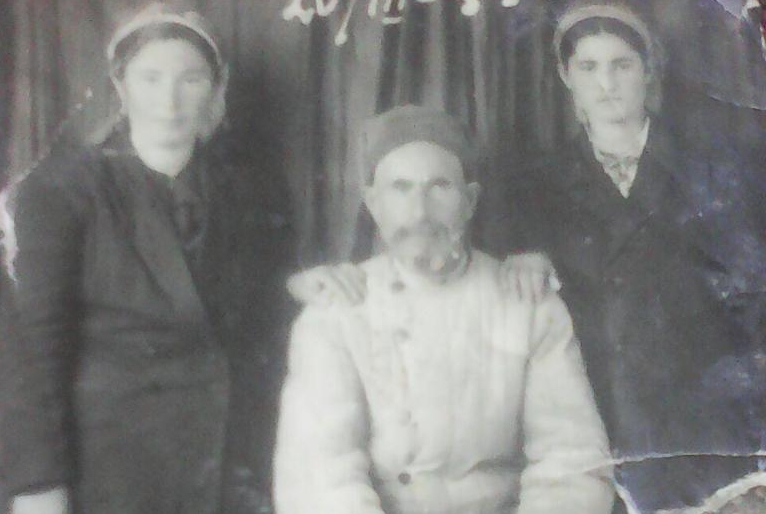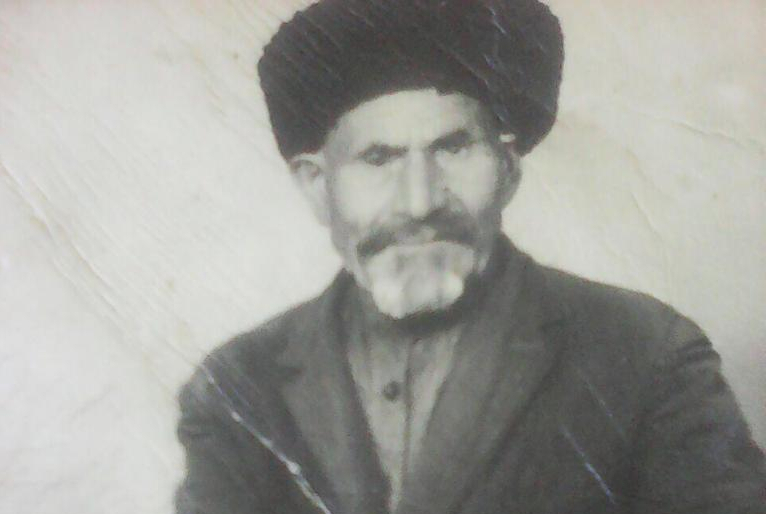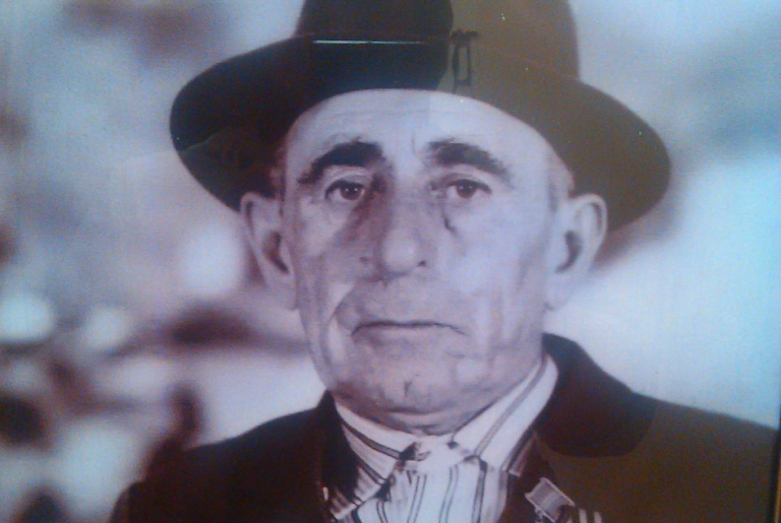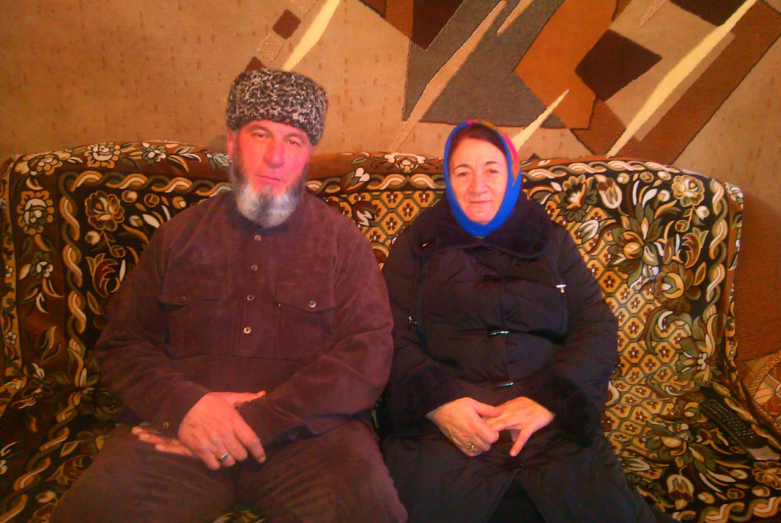February 1, 2019 marks the 65th anniversary of the cadi of the Abaza Muslim religious societies, the imam of the community No. 3 of the city of Cherkessk, Inal Khamzetovich Khubiev. The WAC web info portal prepared an essay about the interesting path of the Muslim leader for his faith, about the main events of his life and work.
Lyudmila Aysanova
Inal Khubiev was born and still lives in the village of Inzhich-Chukun of the Abaza municipal district of the Karachay-Cherkess Republic. His father, Khamzet Abdurakhmanovich Khubiev, a native of the village of Kubin (Kubin Lokt - ed.), was a well-known and respected person in the district.
Abkhaz roots, the difficult fate of the family and the example of his grandfather
Inal recalls that, according to the stories of his grandfather, their ancestors moved from Abkhazia. They came from the genus of Akhuba or Khubua.
“We settled in the village of K'art Jurt, in Karachai, were successfully engaged in cattle breeding, set up a fairly strong farm and even built a stone house for themselves among the first ones,” Inal Khubiev tells about his roots. “Older ancestors spoke good Karachai language, while never forgetting their native language.”
However, the ancestors of Inal Khamzetovich were forced to flee from Karachai village of K'art-Dzhurt due to the persecution under the law of blood feud. Therefore, his grandfather - Abdurakhman - was still a baby in the Abaza Lovo village of Kubin. The diligence and support of fellow tribesmen helped the family to settle in the new place.
The quiet life did not last long: collectivization arose. At that alarming time, many of the Khubiev’s relatives and neighbors were sent into exile. Khubievs themselves were miraculously saved by the biography of one of his grandfather’s brothers: he fought in the First World War, returned from the front in the rank of an officer of the Red Army. In total, this large family, along with his grandfather Abdurakhman, had 12 children.
The example of the grandfather played an important role in the life of Inal Khamzetovich.
“Grandpa Abdurakhman was a faithful Muslim, performing praying services five times a day, says Inal. - As a spellbound one, I always watched his actions during the ritual, tried to grasp a secret meaning in them. It was the grandfather, who later became a guide for me in choosing the path to Islam.”
Father - a worthy son of his father and loyal friend
A string of tests for the Khubiev family continued. The Great Patriotic War began. Our hero's father, Khamzet, went to the front. From the first days of the war, he showed his best national qualities: courage and heroism. Khamzet was actively involved in the liberation of Stalingrad, forcing the Dnieper, fighting for the liberation of Poland and reaching Berlin, where he met his Abaza compatriot Muhamad Bidzhev from the village of Inzhich-Chukun. Comrades together celebrated the legendary Victory. Having become close friends, they decide to remain in the commandant's office for another six months.
Returning to the parental home in December 1945, Khamzet learned terrible news: in 1943 his father and his family were sent into exile to South Kazakhstan along with other Karachais as “traitors to their homeland.” Hardened by the war, Khamzet did not give up and decided, by all means, to restore justice and return his father from the place of exile.
The same colleague, Muhamad from Inzhich-Chukun, actively helped him. Khamzet moved to live in his village, he married there and children were born. All this time, friends thought of returning Abdurakhman, they were preparing numerous appeals to the Ministry of Defense of the Soviet Union, petitions to various authorities with evidence of the Abaza origin of relatives and their innocence. In the end, they achieved their goal: in 1957, a happy family reunited. After three months, a long-awaited, historic Decree on rehabilitation was issued, and all exiles returned to their native villages.
Caring son, Khamzet brought parents to his home. He himself went with his family to the logging, to the stanitsa of Storozhevaya, in order to earn some money and build a new house. Upon his return, he acquired a household, which, by the way, belonged to the mother of the famous poet Michael Chikatuev.
“My father was always a man of word and deed, he knew how to be a friend, and many respected people in the district listened to him, says Inal. - It was quite difficult to meet him, nevertheless, with us - all his children from two marriages had a desire to reach his heights, to adopt all the qualities of his strong character. As follows from the situation of that time, the father was a hardened communist and an atheist.”
Search for work of life and memories of mother
Due to frequent travels with his family, our hero Inal Khubiev studied in various schools, could not properly concentrate and choose his future profession. At first, he became interested in astronomy and physics, tried to enter the Kharkov University. Having failed in the exams, Inal remained in Kharkov and enrolled in preparatory courses for the exams for the next year, but he was enrolled in the army.
Inal successfully passed military service in Armenia in the border troops. He returned home and married soon. Further choice of his profession was determined together with his wife Zoya Khadzhimuratovna Kenzheva. A native of the village of Kubin, she worked as an accountant and auditor in trade organizations. Inal in absentia entered the popular educational institution of those times - the Stavropol Cooperative Technical School - and began to work as a sales representative for several organizations and a builder.
However, unfortunately for himself, he noted that the work did not bring joy at all. For some time, Inal left for construction work in Kazakhstan - in order to save money for the construction of his own house, just as his father had done in his time. When he returned, he acquired a house for his family, where he still lives with his mother Zuryat Murzabekovna, nee Gonova.
“Unlike the father, the mother was humble and pious. Despite the atheism of Soviet morality, the name of Allah was always on her lips, recalls Inal. - It caused me affection and awe”.
In search of meaning and justice
The range of activities of Inal has always been extensive.
So, in the early 90s, he was fascinated by the work in the people's theater at the House of Culture of the village of Inzhi-Chukun. The performances were popular not only in his native village, but also beyond. Work in the theater gave Inal a tremendous experience in communicating with people and developed his oratorical abilities.
In the same 90s, after many years of Soviet atheism, people tried to revive spirituality, recalled national religious beliefs.
Villagers became actively interested in religion, gathering in mosques. Ali Meremkulov, a resident of the neighboring village of Elburgan, was one of the first to promote Islam to his native people. He opened the first courses of the Koran readers, who began to visit Inal together with other village residents. It was Ali, who was a very educated and interesting person, who became his first teacher and guide on the path to the Muslim faith.
Approaching the fortieth year of his life, Inal realized that faith in Allah and the promotion of Islam to the masses is the main thing in his life.
In a special way, Washington Irving’s “Life of the Prophet Muhammad” influenced Inal. It turned his mind upside down, and from that moment, he made a firm decision to promote the ideas of Islam. Inal gradually departed from the secular way of life, devoting himself entirely to religion.
“As a child, I was always distinguished by a heightened sense of justice, which is why my peers assigned me the nickname “law”, recalls Inal. It was the justice I was looking for and thirsty to find was the predominant in Islam.”
Religious activities and formation of the Imam
In 1992, Inal Khubiev as part of a delegation from the Karachay-Cherkess Republic took part in the work of the Muslim congress of the North Caucasus in Makhachkala. By that time, Inal was performing prayer services five times (canonical prayer of Muslims, one of the "five pillars" in Islam - ed.), kept uraza (Muslim post - ed.), visited the Islamic Institute, which opened in Cherkessk.
It was the rector of the institute Ismail-Khadzhi Bostanov, deputy mufti of the spiritual administration of the Karachay-Cherkess Republic and Stavropol, who saw Inal at one of the events.
“At that time, in the village after the flood, the houses of the villagers were seriously affected, and we did everything possible to provide assistance, as well as to organize measures of state support to the population,” recalls Inal. “Ismail-Haji then praised my work and invited me as an assistant to his educational institution.”
The Islamic Institute was the only religious educational institution in the republic. At that time, teachers from Egypt, Turkey, and Central Asia collaborated with the institute, and at the same time, training of local personnel and imams in the mosque was carried out.
Ismail-Haji Bostanov offered Inal Khubiev the position of deputy rector for educational work.
“Everything that I know and can do now, I owe to Ismail-haji Bostanov, who believed in me, invested religious knowledge and skills, says Inal. I did not think that I would go so far in the ministry, and it was he who predicted to me the position of Imam in the future.”
Unfortunately, in 2010 Ismail-Haji Bostanov died tragically.
In 2004, Inal Khubiev makes a Hajj to Saudi Arabia (pilgrimage to Muslim holy places in Mecca and its environs - ed.).
In 2006 - 2008, Inal studied at various seminars in Moscow and St. Petersburg, combining his studies with educational work at an Islamic institute.
In 2011, at the Muslim congress of the Karachay-Cherkess Republic, it was decided to form a muftiyat separate from the Stavropol Territory (territorial organization of Muslims headed by the mufti – ed.). Inal Khubiev was appointed the assistant to the Mufti of the spiritual administration, Ismail-Haji Berdiyev. In 2012, the institute of Cadi was formed, and Inal held the position of Cadi (Muslim’s official judge – ed.) of the Abaza religious communities and the imam of the community No. 3 of the city of Cherkessk. The community includes a school of elementary Islamic education, where all comers are trained free of charge. Memorial ceremonies are also organized.
Inal prefers to talk a little about himself and his activities. He considers it important to work with young people, conduct measures to prevent extremist, terrorist and other asocial manifestations in society.
In the framework of many projects and government programs, Inal Khubiev holds talks in educational institutions and travels to preach in populated areas.
“Now, at a rather difficult time, many people lose their orientation in life, faith in good and justice. Some join radical coalitions, transgress the law and our duty to help these people through the teachings of Islam, says Inal. There are many examples of young people rethinking their mistakes, returning to a normal and healthy lifestyle without alcohol and drugs.”
As Inal Khubiev noted, now in all Abaza villages there are their own mosques, a mosque in the Maloabazinsk village is being repaired and will be opened soon. It is planned to build a mosque in Cherkessk for the community No. 3.
Continuing the path of father and grandfather
Life in Inal’s family proceeds as usual. The daughter works as a teacher, and the son continues the path of the father, being a member of a religious society. Thanks to his grandfather, three granddaughters and two grandchildren perform praying service. Inal Khubiev is especially proud of his granddaughter Diana, who is studying in a religious school in Istanbul.
“No matter if I came late to faith, but this path strengthened me, gave me confidence in the correctness of the choice. The power and will of the Allah is limitless. I followed my grandfather, and my grandchildren will follow me,” said Inal Khubiev.




to login or register.